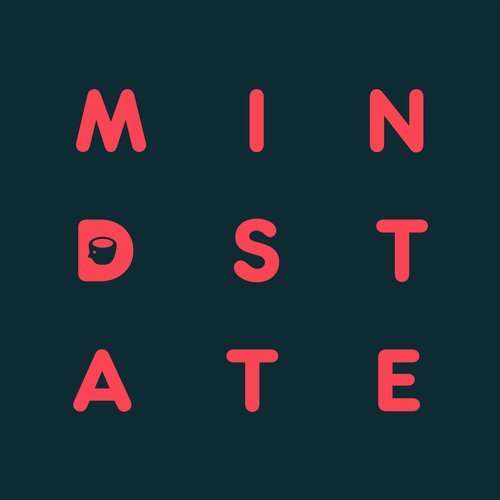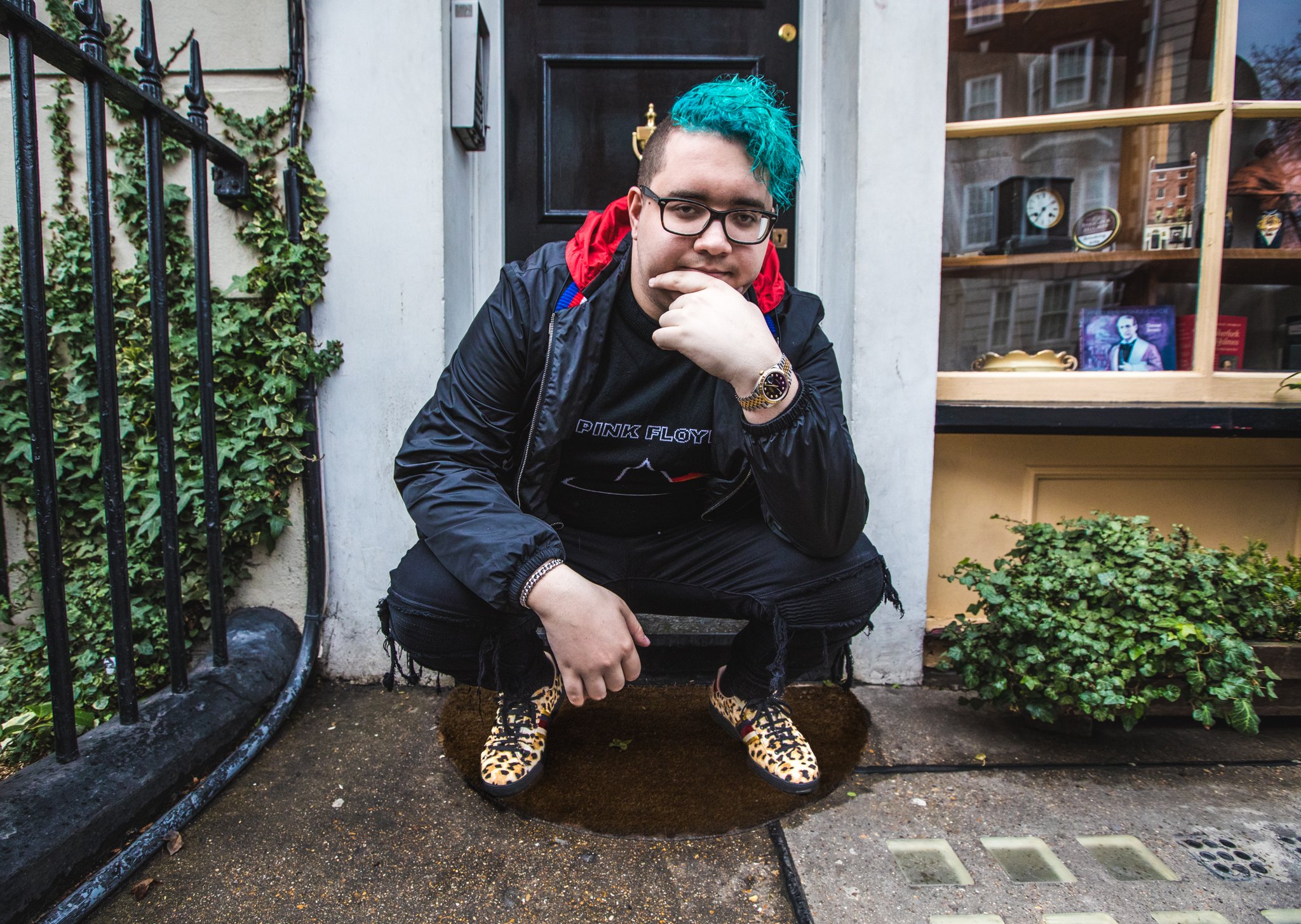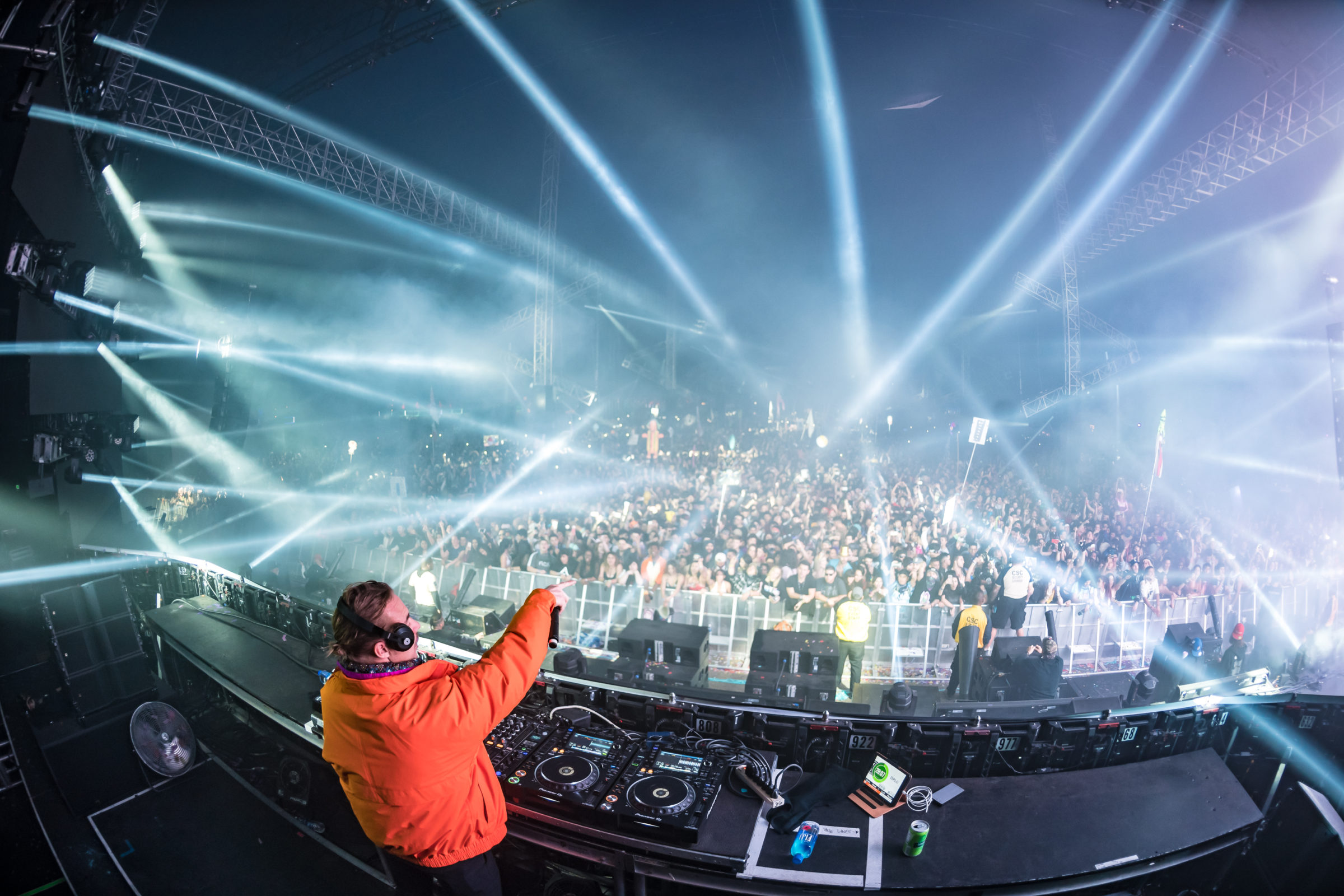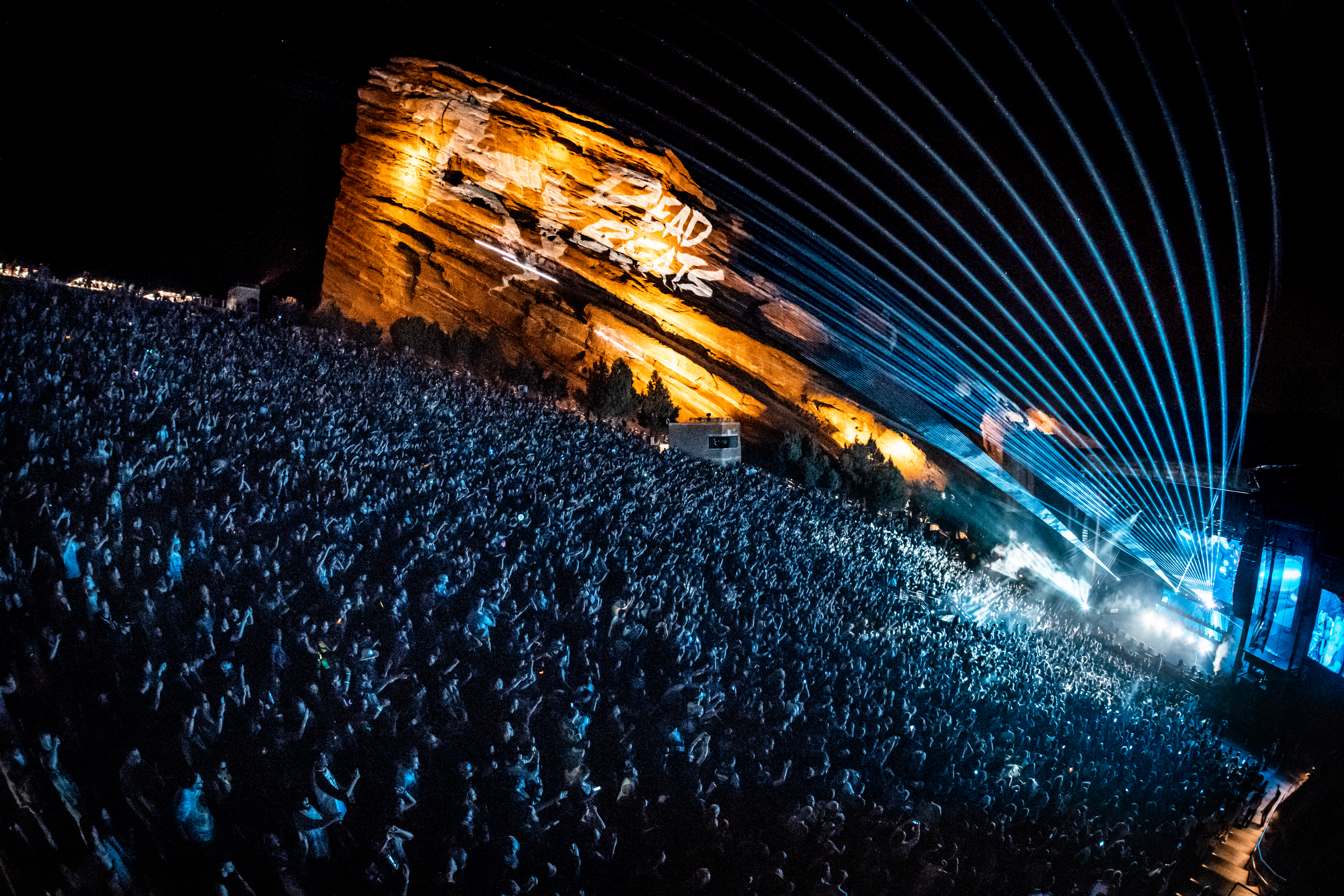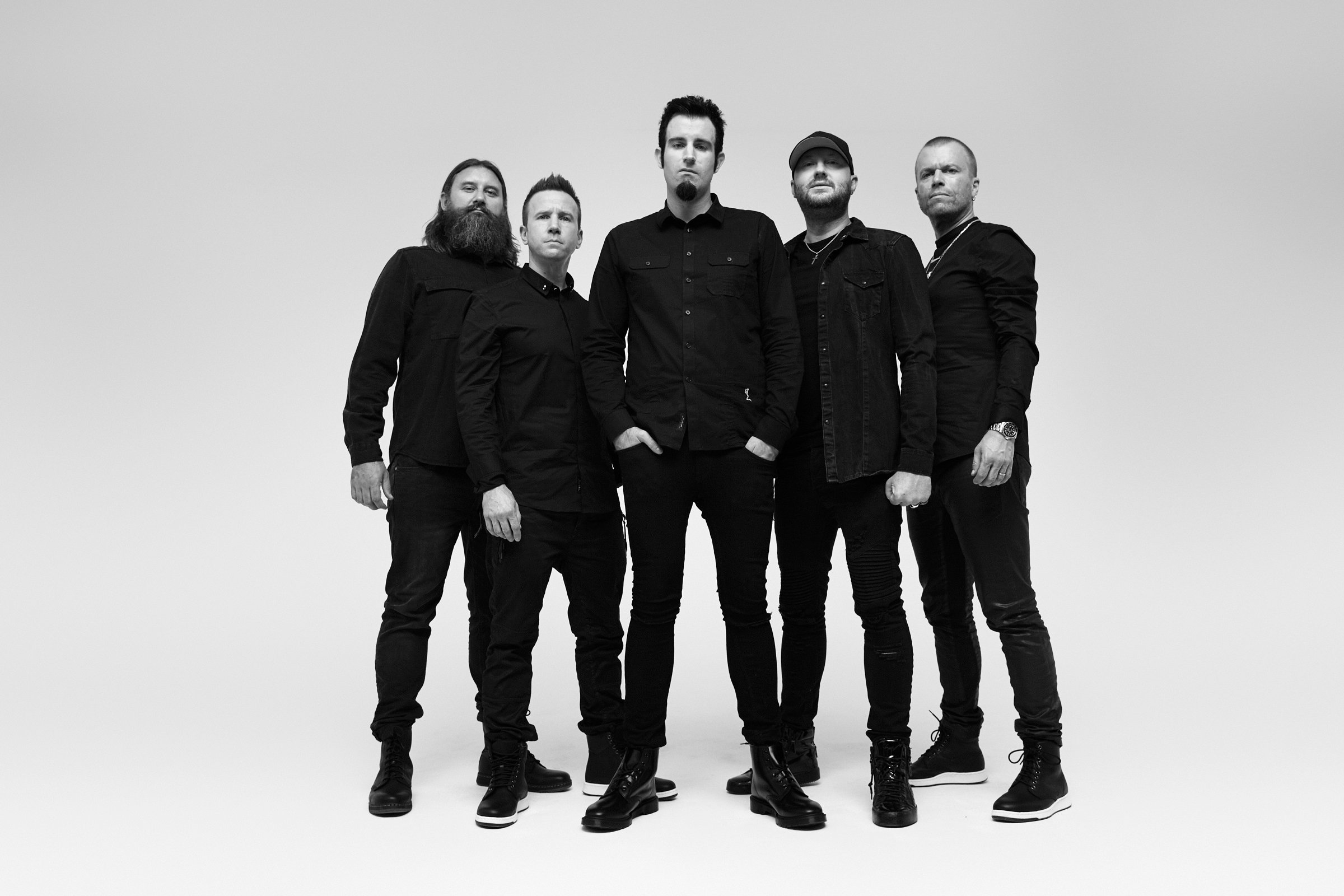Mental health and specifically stress from work is becoming an increasing concern not just in the music industry but across the board in the modern incarnation of industry. With almost all jobs being digital and portable, access is easier than ever but that presents its own set of problems. Namely, the lack of ability to turn off and take a breather.
With this growing concern, many artists and music industry leaders alike in drum and bass and the broader EDM world have been looking for ways to change this narrative about having to constantly work, and inject some self-care into the conversation. Recently AEI Group, who are involved with labels like Drum&BassArena, UKF, Titan NCS, Titan and Subsoul among others, came up with the idea to try to address this. It’s called Getahead.
Getahead is an initiative whose goal is a 25-year plan to create resources for people working in any industry to take time for self-care before stress spirals into mental and emotional issues. To “Getahead” of the problem, so to speak. Their goal is to impact a billion people over that 25 years, really creating a long-term solution. The Getahead festival, held in London on June 13, and the Mind State compilation album, spearheaded by former Pendulum vocalist Ben Verse, were the first steps toward this lofty goal to make a massive impact on the state of well-being, really, for everyone.
The Getahead festival in its first incarnation this year was not only a musical event, but a 24-hour wellness retreat. There were a number of lectures about wellness, a morning rave, yoga, meditation classes, a disco dance party with open turntables and, of course, the Mind State launch party with a number of huge names in drum and bass supporting the album. The event sold out and said album is also doing extremely well, bringing in more funds to benefit Getahead as well as Music Minds Matter, a charity by Help Musicians UK which looks to set up and manage a 24 hour mental health hotline specifically catered to the music industry.
Your EDM got to sit down with Ben Verse recently to talk about the Getahead project, Mind State, and how the album came together. Just like everyone in the music industry, Verse has known people who have had issues with mental and emotional well-being, so the project became personal for him, as did our chat. Check out the album and read what Ben Verse has to say about wellness in the music industry, and why it’s so important to protect one’s “Mind State.”
Ok so let’s just launch right in. How did this all come about? Did you and AEI decide on the festival first or the album first? How did it all come together?
So basically I came to AEI, who are one of the companies that’s behind Getahead (festival in London). Having found out they were doing the festival I asked how they were promoting it and spreading the word. Having spent some time with the team, I thought I would try and help and do something to promote awareness to get more people involved and help get this new festival and the Getahead brand into the public eye.
So I came up with a plan for the album, but at first I was a little bit skeptical. I didn’t know who I could get to provide music for the project. I didn’t know who was where in their own album cycle, who was on tour, et cetera. But the beauty of working in music for the last 22 years and then the last 12 years in live music with Pendulum is I had loads of contacts. So with this album, I just hit up all the people I knew. It was, I think, 45 artists to start with, literally one of the first people to come through was Liam from The Prodigy.
That must have been helpful. So he was on board from the start?
Yeah! I told him about the project and that it was personal to me because I have a friend who…I mean I guess we all have been touched by mental illness whether it’s been a friend or someone you know or yourself. So I told him basically just the facts of the project, that 50% of the profits are going to go to set up a helpline not just for mental illness but just for stress. You can call hopefully before it gets out of control, before someone goes over the top with, say alcohol or something. It’s the same with the festival. Just trying to stop it before it starts.
So I told Liam all that, and I could tell it instantly became personal for him as well. Everyone I think in the music industry either knows someone or has been through it themselves; had problems or has even known someone who died, so he went straight for it. So that was huge because I just thought, “That makes this easier if these guys are on board because they (The Prodigy) are seriously prolific.” And that’s just what happened! Suddenly I had Chase and Status, Spor, who was really excited because he hasn’t played or produced drum and bass for ages, Icicle, Calyx and Teebee, DBridge and Skeptical. It was a lot of collabs which is also really cool.
So it was a great mix and likely stuff people hadn’t heard in a while or ever in terms of what the artists were bringing?
Yeah it was exciting. I mean the types of tunes I like are, it’s a range of course, but I like stuff that has a purpose; drum and bass that has a focus. Obviously I come from that part of drum and bass where it’s very uplifting and melodic. We’ve definitely got that with “Mind State,” but I wanted to cover it all. So we have the Chase and Status stepping jungle vibe, one of Subfocus’s euphoric dance floor killas, liquid tracks, techies, harder stuff…I wanted it to be a 360 degree picture of what drum and bass offers, but at the same time hopefully being of such a good quality that it doesn’t really matter and everyone will want to download and stream it because all the tunes together hopefully tell a story.
It definitely is. So the Prodigy track…it says “Killbox Remix,” so is that like THE Killbox, as in Ed Rush and Audio? How did a remix like that even come about?
Yeah it is them! So basically how that came about is with Liam I was like, “mate, it’s gotta be drum and bass,” and I wasn’t quite sure how he would react. So he sort of said, “yeah…” and then he paused for a second and said, “I’ve got an idea,” and then he looked at his mate sitting next to him and I guess they were on the same page and his mate said, “yeah that’s a good idea,” and then I didn’t hear anything for two weeks! (Laughs) And so the label were going, “Ben…we haven’t heard anything,” and I was just sort of stalling them like, “yeah it’s gonna be great don’t worry,” but I didn’t have a clue if they were even going to give anything to me.
Then we even extended the whole deadline for this track that I knew nothing about! The artists had to have their masters in and we extended the whole thing. Then finally Liam got a hold of me and he was like “mate, it’s Killbox.” I think I started crying almost. Ed Rush and Audio are two of my favorite artists and good friends as well. He literally couldn’t have picked a better collaboration than that. It just really set the whole thing to another level, and all the other artists were so excited as well. It just fit in perfectly because on the album we hadn’t covered that really dark, techy side of it either, so it ticked that box at the same time.
So how did that come about?
Yeah, I mean they (Ed Rush and Audio) were as excited as I was. After I found out it was them, I phoned them up and they were like, didn’t even have to think about it. They said obviously it was a dream come true to remix The Prodigy, so when their label manager at RAM called them they just immediately said “yes.” It’s just crazy how it all worked out, really. I couldn’t have asked for it to happen any better
The album’s been out for a little over a week now [at time of interview], so how’s the reception been?
Well, it’s number three overall on all of Beatport, and I mean you can imagine this time of year how many house and techno releases are coming out right now, so it’s sitting at number three overall. It’s number one in the drum and bass charts (still number one at time of publishing), Chase & Status “All Crew” is number two in the Hot 100 on Beatport, and iTunes it got 14 in the overall dance charts for downloads. Apple music I think it was top 20 and Juno it’s number one.
It seems to be still going as well, it’s just gathering momentum since the festival. The press behind it has been amazing. Lots of high-profile people supporting it on Twitter like Martin Garrix…I’ve been really touched. Stuff like that really helps because it reaches a whole other audience because it’s not drum and bass. Actually the unity that’s been shown around this project within the whole of dance music has been really humbling, in the UK and in the states as well. It makes me think, you know, this isn’t the end. We’re just trying to make it as successful as possible right now, and then hopefully do something with this imprint again, with another genre.
So with the charities you’re trying to help, how does it all work?
The main charity is called Music Minds Matter, and 50% of the profits go to help fund that project, and then the other 50% is going to Getahead, which obviously is the festival but it’s part of a 25-year plan dedicated to wellness in the workplace. Whether that’s music, management, any kind of tech industry or anything. It’s meant to be teaching people and helping people to fight anxiety and how to avoid getting into the pitfalls of stress, seeing the trigger signs and providing solutions. Any kind of positive move towards helping people live a little bit healthier life, especially if you do live this kind of lifestyle like producers where you spend a lot of time inside on the computer and stuff.
How did the festival do? Did it seem like a success?
Yeah it did really well. On the music end we couldn’t have asked for a better lineup, really. It was Friction and then Calyx & Teebee, Dimension back to back Culture Shock, Document One, Benny L…it was unbelievable. I mean all those names in the space of three and a half, four hours.
It was a 24 hour festival and earlier on in the day Jenni, Max and Dan from Getahead had organized many different talks and panels as well as fitness classes and exercise raves. It was completely rammed throughout the day, you couldn’t even get into the room of some of the panels and talks…it was just an unbelievable success.
I remember thinking, “why hasn’t this been done already?” One of the directors even said to me at the festival, “Ben, we thought we’d be here in about five years, it’s gone so well.” It was fantastic. We really came together, everyone chipped in, and it was just so cool to see that we were supported. We had a number of big brands as well who helped with support, and then the Mind State album did great as well, I mean I couldn’t have asked for anything more. I can’t wait to do it again and see how much more of an impact we can make.
Are you thinking maybe to do it more than once per year?
We have to sit down and really look at how this last one went from all sides and figure out again how we can make the most impact. This album actually was put together so quickly. It was just about four weeks from concept to release. It was so fast, I can’t even tell you. I was determined and I literally just went knocking on studio doors. It’s hard to communicate and get something together that quickly with emails, and I felt people also had to see and feel what I was about with this. And it worked well. And again The Prodigy along with the other high profile artists made it easy for me.
So what did you think about the rest of the festival and the way they addressed all the issues of stress and mental well-being head on?
For me, I think that was the most important part. My bit with the album and the little launch party, I felt like that was the icing on the cake. There were so many really famous speakers talking about stress, and then we had the yoga and fitness aspect of it. Really, no one has done anything like this before with directly addressing mental wellness in the music industry and tech industry like this before and it’s clear right now that it’s so needed. I just thought that since it was with AEI and music-related, it was important to have something physical like the album to tie it all in.
That would definitely be a big draw and really important to bring music like this to a music industry wellness fair. I know in the U.S. that’s probably the only way you could get people really interested, so it’s more than a cherry on top, isn’t it?
Yeah, that’s true. If you have these big names and these huge acts and an album release associated with it, that’s how you get press. We got a Billboard premiere, UKF, Drum&BassArena and other publications also supported it really well. It really helps to have those major outlets I think, because then it becomes more about supporting the music and then supporting people who work in music as well.
Getting personal for a second, it’s clear that you’re really passionate about the project. What made you want to dive in so fervently?
Well, as I said I had a friend who made an attempt…I don’t want to say too much but I was with him and I was there when the police had to take him to hospital so something like that really changes the way you look at it. Also just coming off the road with Pendulum after so many years, I really felt for myself that I needed a focus and that I was sort of drifting. Going back into drum and bass I was worried it was going to be tricky because I was coming from this weird offshoot of drum and bass.
I was just feeling a bit lost, so it wasn’t just people I knew. I could really relate to it because it was me a little bit. So it wasn’t even like just looking for work anymore, it was about wanting to do something good for other people and something for my own karma and my own sense of well-being as well. So I gained a lot of momentum and a lot of confidence doing something I cared about and I didn’t know it at the time but I was sort of reinventing myself and showing not just other people but myself what else I can do with music and to help people. It was just about vibe in a different way. It wasn’t just about getting on a plane, smashing up a rave and then doing it again the next night. It’s deeper now, and it’s been really interesting.
I’m also so grateful that AEI gave me the opportunity. They could have just said, “sorry mate, this is ridiculous,” but they were open to my idea. They turned around and supported me and they saw I was enthusiastic and they took a chance on me. I’m just so happy it turned out well.
Sounds like quite a learning experience.
Definitely. I mean even just the small things like coming to an office environment…I’ve never had a job my whole life! I’ve been on tour since I was young. So going forward I learned a lot. Working in a team, you have to make compromises and learn to adapt and keep a level head and think about the bigger goal. I think I can say in this short time I’ve learned more than I did in the last 15 years of touring so it was really positive.
From a mental health standpoint also this can be really important, both in terms of taking care of musicians and tech people and for also being sort of a champion for mental health rights and getting the word out there. So is that another thing that motivated you?
Yeah, definitely. It clearly needs to be talked about and so many of the things that are happening right now are down to mental health. And even if they aren’t, so many people are touched by this personally. Whether it’s a friend or yourself or, you know, in our case just knowing how the music industry works. It’s non-stop. With the Avicii thing, for example, if you look at the really big names, it really is about who works the hardest in those scenarios: who puts out the most product and who does the most shows.
It used to be that to make an album you needed to set aside a few months and then it was done. Now it just never stops. It’s all done on laptop and the laptop goes everywhere with you, so there’s all this pressure to keep working and keep producing to keep your edge. It’s on the airplane with you, hotel, tour bus, everywhere. I mean if you’re not focusing on making tunes, it’s like this constant pressure to be creative and to be on it. Staying up late, drinking energy drinks or whatever. Almost killing yourself and then doing a show and then doing press or mixes or the business side of releasing. Where’s the off button? Something has to give. And then to be frank, that’s where artists turn to alcohol and drugs to help to deal with it, or they literally just lose it.
That’s true and people don’t look at that bit at all that the partying may just be a coping mechanism. It just looks fun and is seen as part of the culture. And it’s not just EDM it’s pop as well. Chris Cornell for example, or Anthony Bourdain.
Yeah Chester Bennington as well. We (Pendulum) met him when we supported Linkin Park on tour, you think everything’s going really well. I really believe though from one thing or another their brains have just had enough. And that’s really what the helpline is for. When you’re at the point where no one really understands that it’s a health issue. You know you can’t talk to your girlfriend or your friends because they’re almost too close to it and they think you’re living the dream, partying every night and doing music and what you love.
It’s great to have someone completely impartial who’s not going to judge you and can help you get the help you need or stop you from really spiraling. But even if you just talk. I know it’s a cliché, but a problem shared is a problem halved. Just getting a little bit of perspective. We’ve all had those moments. Even I have, where if I’d just had someone say, “it’s ok, just turn your laptop off and address it in the morning.” Just a reminder to look after yourself first. That’s why I think this project and specifically the helpline are so important.
Do you think it also helps with the stigma where people are worried about seeming crazy? If there’s an anonymous place to go, it gets past the fear of the stigma and maybe gets people understanding how helpful treatment of just self-care really is?
I’m so glad you said that. I really agree that everyone can benefit from talking to someone neutral and working on their own mental health. I just hope we’re doing our part to get people to stop and consider taking care of themselves more. We just hope to keep growing it to help more people. That’s why I did the album because I think it’s important and I think the album gave it that voice to reach more people.
So as far as moving forward, are you planning to expand next time?
Well it sold out so we definitely need to do something bigger next time! We’re looking at doing something maybe in the north of England but it’s also important that we don’t get ahead of ourselves and grow too quickly. We want this to be a lasting impact. But I think it’s clear that it’s definitely something that needs to be addressed and that people are interested in and that there is a need for in the music industry and beyond. Again, I’m just so glad to be a part of it.
Getahead are planning to continue with their project and the goal to reach a billion people in 25 years to change the public perception about mental health and stress. Visit their website for news about upcoming events and programs. Information is also on the Getahead website about the 24 hour helpline set up by Music Minds Matter and Help Musicians and other resources if you or someone you care about has been affected by any of the issues raised in this article. The Mind State collaborative album is available to purchase and stream on all major platforms by clicking here.


